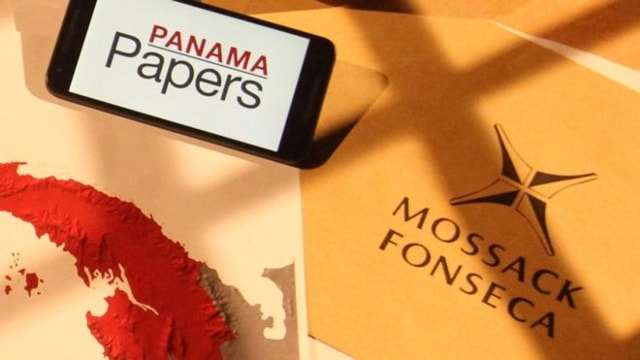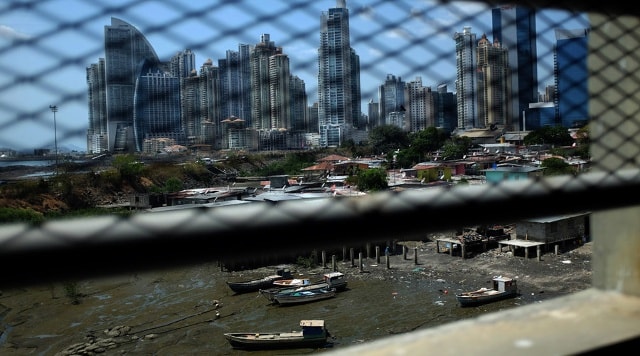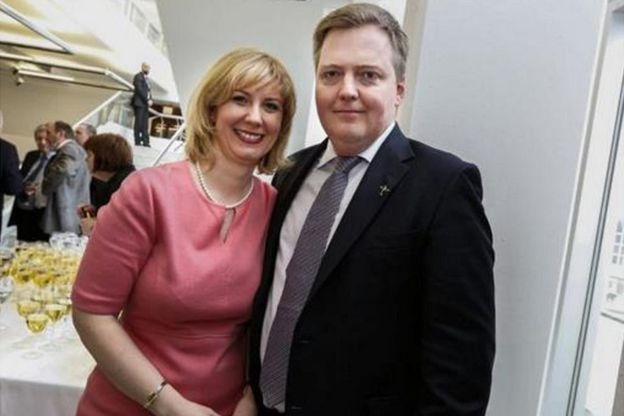The unpredictable "destructive power" of the Panama Papers
(Baonghean) - Immediately after being published by the international press, the Panama Papers immediately created a stir - in both the media and in the political arena of various countries.
The names that have been revealed include 140 politicians, including 12 current and former leaders from around the world, but no one is certain that this list will not change in the near future. Although there is no official conclusion to the investigation, the political scene in some countries has already received the first turbulence.
 |
| The Panama Papers shockwave is spreading rapidly in the world media. Photo: BBC. |
“Crush” Wikileaks and Edward Snowden
With about 11.5 million documents taken from the internal system of the Mossack Fonseca Law Firm - Panama Papers is considered one of the largest information leaks in history, larger than the Wikileaks case in 2010 and the information leak from Edward Snowden in 2013.
The documents were revealed after a year-long investigation by the International Consortium of Investigative Journalists (ICIJ), which includes the German newspaper Süddeutsche Zeitung and more than 100 other news organizations around the world.
The Panama Papers could “crush” Wikileaks and Edward Snowden not only because of the huge volume of documents, but also because of its unpredictable impact on the political life of countries when up to 140 politicians in many different countries are suspected of being involved in tax evasion and money laundering activities. Of course, scandals related to individual politicians, especially leaders, will have a much greater “destructive power” than scandals of organizations such as the US National Security Agency (NSA) or the German National Intelligence Service (BND)…
Documents in the Panama Papers reveal the activities of Mossack Fonseca over the past 40 years since 1975, showing that this company has helped clients evade taxes and launder money through the establishment of 214,000 shell companies, related to figures from 200 countries and territories. The people behind these companies are billionaires, sports stars, drug lords, fraudsters and even politicians, of which at least 33 individuals and companies have been blacklisted by the US government for having business activities with Mexican drug lords or terrorist organizations, countries under sanctions such as Iran and North Korea.
The companies that Mossack Fonseca created were often only names on paper with headquarters registered in “Tax Havens” – places where it is difficult for authorities to find the owners in case of an investigation such as the British Virgin Islands, Bahamas, Panama… To create a cover for the ghost companies, Mossack Fonseca also had the help of large banks – intentionally or unintentionally. Among the more than 500 banks appearing on the list are famous names such as HSBC, UBS and Société Générale…
 |
| Panama - where Mossack Fonseca's headquarters is located. Photo: AFP. |
Tax evasion - clean? 50-50
After the world media was stirred up by the Panama Papers, Lawyer Ramon Fonseca - one of the two co-founders of Mossack Fonseca said: "This is an attack on Panama, because some other countries do not like the fact that we attract more companies than them."
In terms of market competition, Ramon Fonseca's assessment is not unreasonable as the company is currently the 4th largest offshore service provider in the world, having provided services to more than 300,000 companies.
Mossack Fonseca also claims that it has always followed international procedures to ensure that the companies it supports are not involved in tax evasion, money laundering, terrorist financing or any other illegal purposes. The proof is that it has operated smoothly for the past 40 years without getting into legal trouble.
Formally, owning an offshore company like Mossack Fonseca is not illegal. Besides, in some countries, it is common practice to use offshore legal services. For example, businessmen in Russia and Ukraine often keep their assets offshore to avoid the risk of attacks by criminal gangs and to avoid tight currency regulations.
However, Mossack Fonseca's concealment of the identities of its real owners is another story. Of the 214,000 companies Mossack Fonseca created, the majority existed only on paper, without any offices or employees.
Additionally, while Mossack Fonseca claims it only acts as an “intermediary” and never directly deals with end clients, information from the Panama Papers shows that the company directly handles end clients’ bank accounts.
Up to now, whether Mossack Fonseca's activities are illegal or not, whether the source of money of the clients who hired the company's services is "dirty money" or not, the exact answer must await the conclusion of the investigation agency.
However, public opinion believes that Mossack Fonseca’s concealment of the real owners of the money sources is a “shady” sign. Therefore, the characters appearing in the Panama Papers are really standing on a thin line between tax evasion and innocence.
 |
| Icelandic Prime Minister Gunnlaugsson and his wife - the first to be hit by the Panama Papers. Photo: BBC. |
The worries of… 1% of the world
Before the Panama Papers were published by international media, Mossack Fonseca sent a letter to its clients warning that the leaked information could create a media storm. The “media storm” has already appeared, but public opinion believes that this storm will become even stronger in the coming time as these documents are examined more closely.
Up to this point, the most prominent names are only Icelandic Prime Minister Davîo Gunnlaugsson, King Salman of Saudi Arabia, Syrian President Bashar al Assad, Ukrainian President Poroshenko, friends of former British Prime Minister David Cameron, confidants of Russian President Vladimir Putin... But no one is sure where this list stops, and no one knows how many of the clients who received letters from Mossack Fonseca are "restless". And as BBC commented, the Panama Papers are the fear of 1% of the world.
Currently, some countries such as Australia, New Zealand, Sweden, France... have announced that they will investigate the individuals and companies that show signs of shady business practices in this scandal.
Although it will take some time for investigators to reach an official conclusion, the shockwaves of the Panama Papers on the world political scene have already shown their first signs. In Iceland, thousands of people took to the streets to protest, demanding the government and Prime Minister Gunnlaugsson himself to resign when his name, along with that of the Minister of Economy and Finance and the Minister of the Interior, appeared in the Panama Papers. Specifically, Prime Minister Gunnlaugsson is said to have established a company called Wintris in the Virgin Islands, a familiar tax haven in the Caribbean.
Meanwhile, the governments of many other countries such as Russia, Pakistan, etc. have also issued statements denying the accusations related to their politicians in the Panama Papers.
Everyone knows that the most valuable denial is the official results of the investigators, but how many countries are determined to find out the truth behind the Panama Papers is the real question. That is why the public continues to wait anxiously for the next chapters of the story called the Panama Papers.
Thuy Ngoc
| RELATED NEWS |
|---|

